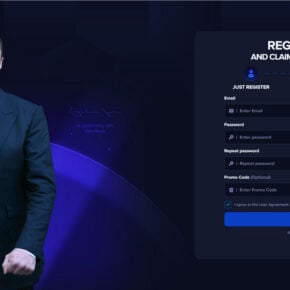Scams and phishing attempts have become increasingly sophisticated in recent years, targeting unsuspecting individuals and organizations. One such scam that has gained traction is the CPanel ‘Limited Email Storage Remaining’ phishing scam. This article aims to provide a comprehensive overview of this scam, including what it is, how it works, what to do if you have fallen victim, technical details, and relevant statistics.

What is the CPanel ‘Limited Email Storage Remaining’ Phishing Scam?
The CPanel ‘Limited Email Storage Remaining’ phishing scam is a deceptive tactic used by cybercriminals to trick individuals into revealing their login credentials and other sensitive information. The scam typically involves sending an email that appears to be from a legitimate source, such as a hosting provider or system administrator, informing the recipient that their email storage is almost full.
The email often includes urgent language and a sense of impending consequences if action is not taken immediately. It may claim that failure to address the issue will result in the loss of important emails or even account suspension. To resolve the supposed problem, the email instructs the recipient to click on a link or download an attachment.
How Does the Scam Work?
Once the recipient falls for the scam and clicks on the provided link or downloads the attachment, they are directed to a fake login page that closely resembles the legitimate CPanel login page. This page is designed to capture the victim’s login credentials, which are then harvested by the cybercriminals.
After obtaining the login credentials, the scammers can gain unauthorized access to the victim’s CPanel account. This can have severe consequences, as the attackers may be able to access sensitive information, manipulate website files, or even launch further phishing attacks using the compromised account.
What to Do If You Have Fallen Victim?
If you have fallen victim to the CPanel ‘Limited Email Storage Remaining’ phishing scam, it is crucial to take immediate action to minimize the potential damage:
- Change your CPanel account password: As soon as you realize you have been scammed, change your CPanel account password to prevent further unauthorized access.
- Scan your device for malware: Run a thorough scan of your device using reputable antivirus software, such as Malwarebytes Free, to ensure that no malicious software was installed.
- Review your account activity: Check your CPanel account for any unauthorized changes or suspicious activity. If you notice anything unusual, report it to your hosting provider immediately.
- Enable two-factor authentication (2FA): Implementing 2FA adds an extra layer of security to your CPanel account, making it more difficult for attackers to gain unauthorized access.
- Report the phishing attempt: Forward the phishing email to your hosting provider and any relevant authorities, such as the Anti-Phishing Working Group (APWG) or the Federal Trade Commission (FTC).
Technical Details of the Scam
The CPanel ‘Limited Email Storage Remaining’ phishing scam relies on social engineering techniques to deceive victims. The scammers carefully craft the email to appear legitimate, often using official logos, email signatures, and professional language. They may also spoof the sender’s email address to make it appear as if it is coming from a trusted source.
Furthermore, the scammers create fake login pages that closely mimic the design and layout of the legitimate CPanel login page. They may even use SSL certificates to make the fake page appear secure, further increasing the chances of victims falling for the scam.
Statistics on Phishing Scams
Phishing scams, including the CPanel ‘Limited Email Storage Remaining’ scam, continue to be a significant threat in the digital landscape. Here are some statistics that highlight the prevalence and impact of phishing:
- According to the Anti-Phishing Working Group (APWG), there were over 222,000 unique phishing attacks reported in the first quarter of 2021 alone.
- Phishing attacks cost businesses an estimated $1.8 billion in losses in 2020, according to the FBI’s Internet Crime Complaint Center (IC3).
- A study by Verizon found that 36% of data breaches involved phishing attacks.
- Phishing attacks targeting individuals increased by 220% in 2020, according to a report by Atlas VPN.
Summary
The CPanel ‘Limited Email Storage Remaining’ phishing scam is a deceptive tactic used by cybercriminals to trick individuals into revealing their login credentials and other sensitive information. It involves sending an email that appears to be from a legitimate source, urging the recipient to take immediate action to address a supposed email storage issue. Once the victim falls for the scam and provides their login credentials, the scammers can gain unauthorized access to their CPanel account.
If you have fallen victim to this scam, it is crucial to change your CPanel account password, scan your device for malware, review your account activity, enable two-factor authentication, and report the phishing attempt. Phishing scams, including the CPanel ‘Limited Email Storage Remaining’ scam, continue to be a significant threat, costing businesses billions of dollars in losses each year. By staying vigilant and taking appropriate security measures, individuals and organizations can protect themselves from falling victim to these scams.

![How to Remove Osguard.pro Pop-ups [Virus Removal Guide] 3 McAfee scam 4](https://malwaretips.com/blogs/wp-content/uploads/2023/08/McAfee-scam-4-290x290.jpg)

